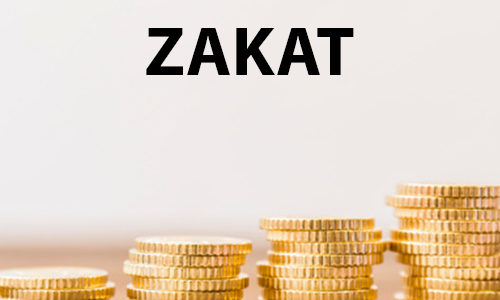5th September 2018
السلام عليكم ورحمة الله وبركاته
Question: Is it permissible to donate optional charity to non-Muslims?
الجواب حامداً ومصلياً
In the name of Allāh, the Most Gracious, the Most Merciful
Answer:
It is permissible to give optional charity to Non-Muslims. Only Zakāt cannot be given to them.[1] Based on this, one can even donate optional charity towards Non-Muslim welfare projects such as cancer care projects, building hospitals, orphanages etc.
[Allāh Knows Best]
Written by: Maulana Anas Mullah Reviewed by: Mufti Abdul Waheed
Attested by: Shaykh Mufti Saiful Islam
JKN Fatawa Department
[1] وَأَمَّا أَهْلُ الذِّمَّةِ فَلَا يَجُوزُ صَرْفُ الزَّكَاةِ إلَيْهِمْ بِالِاتِّفَاقِ وَيَجُوزُ صَرْفُ صَدَقَةِ التَّطَوُّعِ إلَيْهِمْ بِالِاتِّفَاقِ، وَاخْتَلَفُوا فِي صَدَقَةِ الْفِطْرِ وَالنُّذُورِ وَالْكَفَّارَاتِ قَالَ أَبُو حَنِيفَةَ وَمُحَمدٌ – رَحِمَهُمَا اللَّهُ تَعَالَى – يَجُوزُ إلَّا أَنَّ فُقَرَاءَ الْمُسْلِمِينَ أَحَبُّ إلَيْنَا كَذَا فِي شَرْحِ الطَّحَاوِيِّ. وَأَمَّا الْحَرْبِيُّ الْمُسْتَأْمَنُ فَلَا يَجُوزُ دَفْعُ الزَّكَاةِ وَالصَّدَقَةِ الْوَاجِبَةِ إلَيْهِ بِالْإِجْمَاعِ وَيَجُوزُ صَرْفُ التَّطَوُّعِ إلَيْهِ كَذَا فِي السِّرَاجِ الْوَهَّاجِ
(الفتاوي الهندية، كتاب الزكاة، الباب الثالت في زكاة الذهب، الباب في المصارف، جلد ١، ص١٨٨)
)قَوْلُهُ: لِحَدِيثِ مُعَاذٍ) أَيْ الْمَارِّ عِنْدَ قَوْلِهِ وَمُكَاتَبٌ، إذْ لَا خِلَافَ أَنَّ الضَّمِيرَ فِي أَغْنِيَائِهِمْ يَرْجِعُ لِلْمُسْلِمِينَ فَكَذَا فِي فُقَرَائِهِمْ مِعْرَاجٌ (قَوْلُهُ: غَيْرُ الْعُشْرِ) فَإِنَّهُ مُلْحَقٌ بِالزَّكَاةِ وَلِذَا سَمَّوْهُ زَكَاةَ الزَّرْعِ، وَأَمَّا الْخَرَاجُ فَلَيْسَ مِنْ الصَّدَقَاتِ الَّتِيفِيهَا وَمَصْرِفُهُ مَصَالِحُ الْمُسْلِمِينَ كَمَا مَرَّ وَلِذَا لَمْ يَسْتَثْنِ فِي الْكَنْزِ وَالْهِدَايَةِ إلَّا الزَّكَاةَ
لَكِنْ رَأَيْت فِي الْمُحِيطِ مِنْ كِتَابِ الْكَسْبِ: ذَكَرَ مُحَمَّدٌ فِي السِّيَرِ الْكَبِيرِ: لَا بَأْسَ لِلْمُسْلِمِ أَنْ يُعْطِيَ كَافِرًا حَرْبِيًّا أَوْ ذِمِّيًّا، وَأَنْ يَقْبَلَ الْهَدِيَّةَ مِنْهُ، لِمَا رُوِيَ «أَنَّ النَّبِيَّ – صَلَّى اللَّهُ عَلَيْهِ وَسَلَّمَ – بَعَثَ خَمْسَمِائَةِ دِينَارٍ إلَى مَكَّةَ حِينَ قَحَطُوا وَأَمَرَ بِدَفْعِهَا إلَى أَبِي سُفْيَانَ بْنِ حَرْبٍ وَصَفْوَانَ بْنِ أُمَيَّةَ لِيُفَرِّقَا عَلَى فُقَرَاءِ أَهْلِ مَكَّةَ» وَلِأَنَّ صِلَةَ الرَّحِمِ مَحْمُودَةٌ فِي كُلِّ دِينٍ وَالْإِهْدَاءُ إلَى الْغَيْرِ مِنْ مَكَارِمِ الْأَخْلَاقِ إلَخْ وَسَنَذْكُرُ تَمَامَ الْكَلَامِ عَلَى ذَلِكَ فِي أَوَّلِ كِتَابِ الْوَصَايَا.
(رد المحتار، كتاب الزكاة، باب مصرف الزكاة والعشر جلد ٢، ص٣٥٢)


